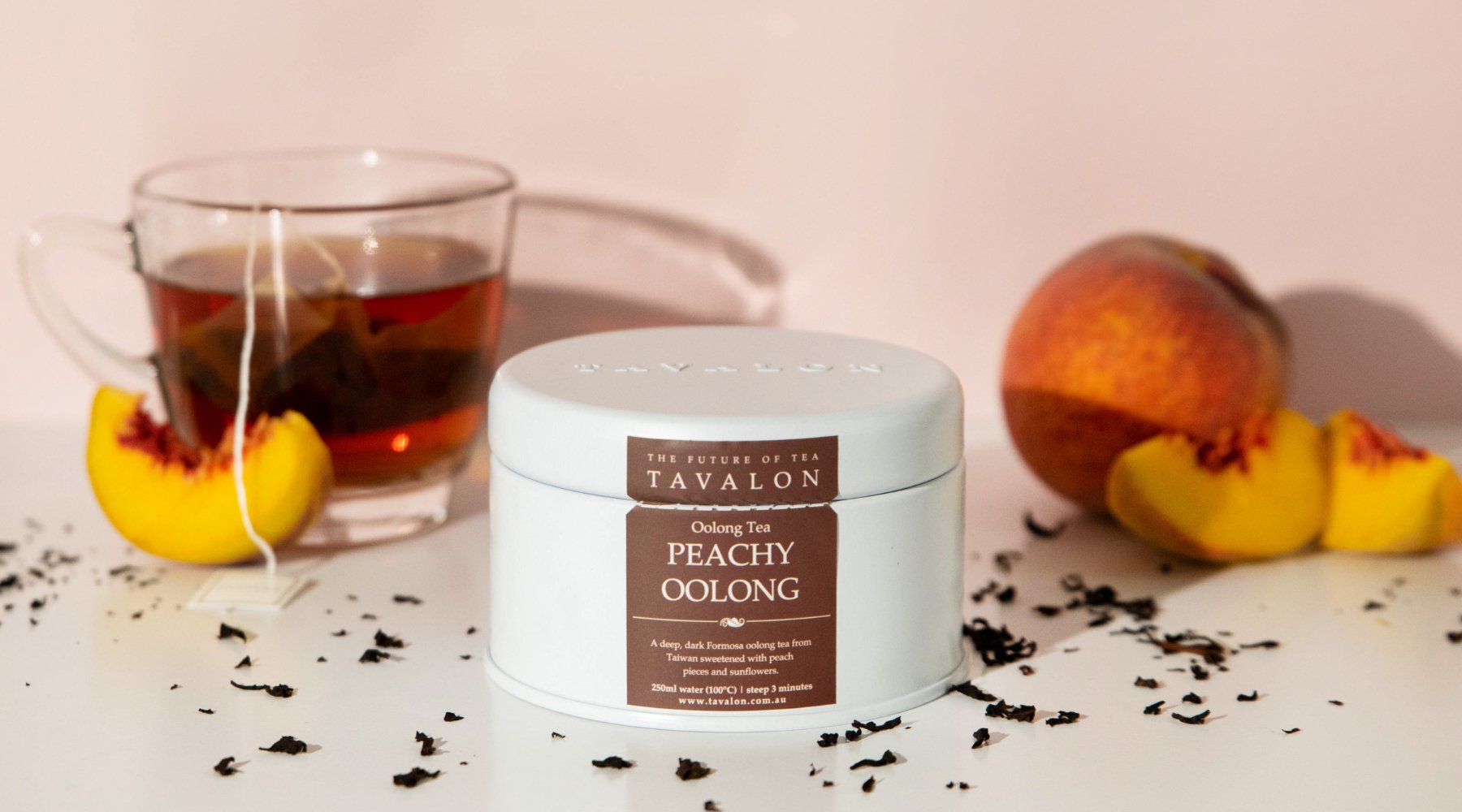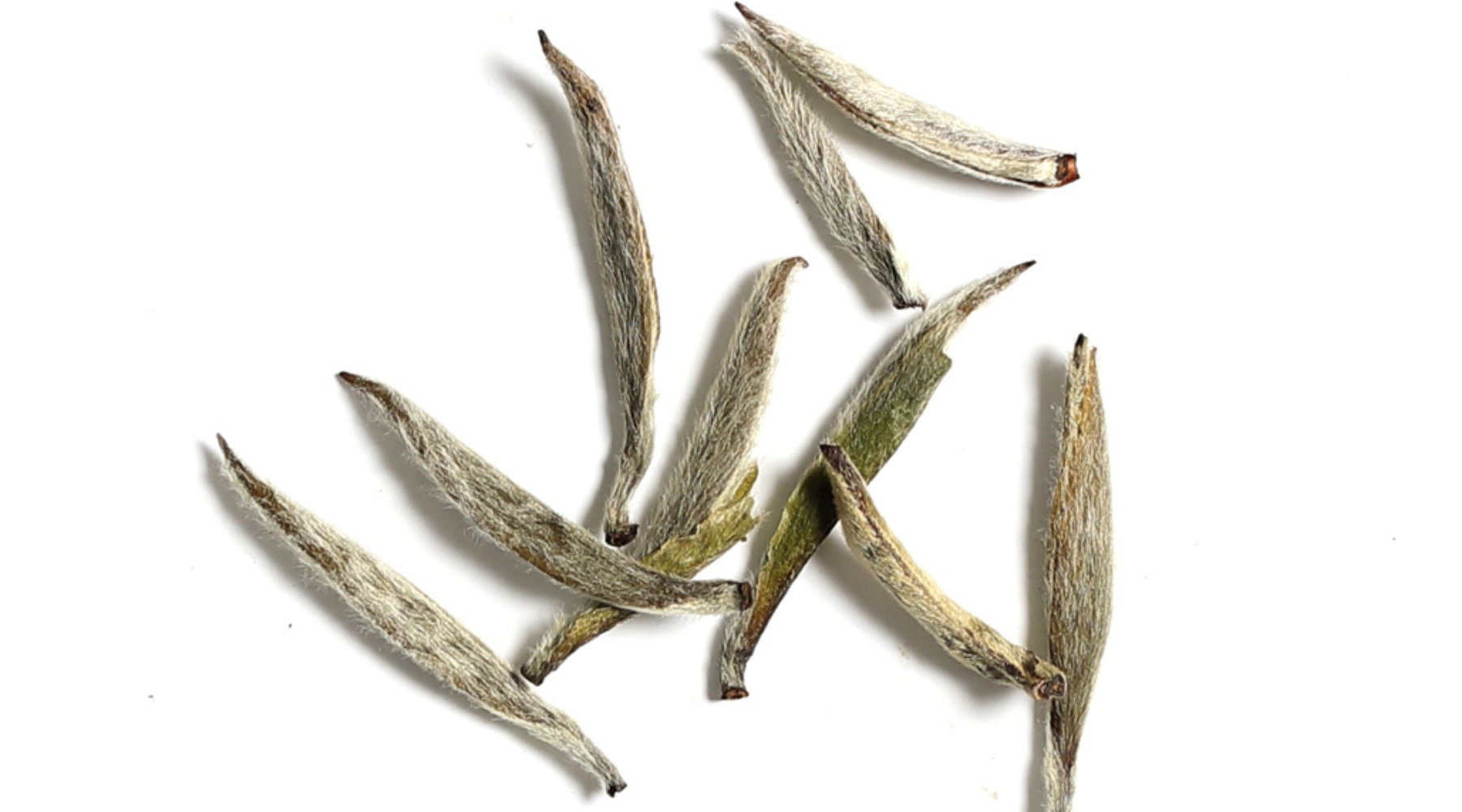
Oolong Tea Benefits
Oolong tea, a traditional Chinese tea, falls between green and black teas in oxidation levels. It harmoniously captures the essence of both black and green teas. Its semi-oxidised nature renders it a powerhouse of antioxidants and vital nutrients, making oolong tea a beverage that is both delicious and brimming with potential benefits to enhance well-being.
As we explore everything about oolong tea, we'll discuss the protective effects it offers, explaining how this tea, with its unique blend of black and green tea properties, as well as its exclusive benefits, contributes to a healthier lifestyle.
Recommended: Explore Tavalon’s premium oolong teas by tapping here.
For those who are new to the world of oolong tea, here’s a quick overview:
History and Origin of Oolong Tea
Oolong tea, originating from China's Fujian province, sits between green and black teas in oxidation. Its name, translating to "Black Dragon," hints at its intricate crafting. This traditional Chinese tea is defined by its partial oxidation process, capturing the essence of both green and black teas.
Dating back to the Ming Dynasty (1368-1644 AD), oolong tea embodies centuries of Chinese tea culture. Legends whisper tales of ancient tea masters dedicating their lives to perfecting this tea. Its unique processing method, involving partial oxidation, showcases the expertise passed down through generations.
How Is Oolong Tea Produced?
Oolong tea's exceptional quality begins with meticulous plucking. Skilled harvesters selectively choose only the finest leaves from Camellia sinensis plant – the original tea plant. This is to ensure a delicate balance of maturity and tenderness. After plucking, the leaves undergo withering, where they're laid out in the sun to wilt slightly. This initial step kickstarts the oxidation process, setting oolong apart from green teas.
The partially withered leaves are then shaken or tumbled, bruising the edges slightly. This bruising allows for controlled oxidation. Here, the artistry of the tea master comes into play.
Monitoring the oxidation level meticulously, the leaves are pan-fired or baked at precise temperatures to halt the oxidation process. The degree of oxidation can vary widely, from lightly oxidised oolongs with floral notes to heavily oxidised ones with robust, earthy flavours.
Oolong teas boast varying oxidation levels, falling between Green Tea (0% oxidation) and Black Tea (100% oxidation). This range, from 8% to 85%, results in a diverse flavour spectrum, spanning from floral and green to sweet and fruity, and even venturing into woody and smoky notes.
The final step involves rolling and shaping the leaves, giving oolong tea its distinctive appearance.
Health Benefits of Oolong Tea

In the vast tea landscape, oolong is a rare find, making up just a humble 2% of the world's tea production and consumption.
But with its unique taste comes a lot of health benefits. This unique tea offers a daily dose of goodness, blending exquisite flavour with remarkable health perks.
Disclaimer: While we explore existing research on oolong tea benefits, this information serves educational purposes and isn't medical advice. For health concerns, consult a medical professional. This article doesn't diagnose, treat, cure, or prevent any disease. Stay informed, but always consult experts for personal health decisions.
Full of Antioxidants, Nutrients and Vitamins
Oolong tea, sitting between green and black varieties in terms of oxidation, is a rich source of antioxidants, including polyphenols and catechins. These compounds act as vigilant protectors, shielding cells from oxidative stress, a trait shared with green and black teas.
Oolong tea also contains essential vitamins and minerals like calcium, magnesium, and potassium. In terms of caffeine, a cup of brewed oolong tea packs approximately 38 mg, a bit more than green tea's 29 mg.
Its key antioxidants, including theaflavins, thearubigins, and EGCG, contribute significantly to its health benefits
Aiding Weight Management and Metabolism Boost
Tea and weight loss have a longstanding connection, with research pointing to bioactive compounds aiding in this journey. Previously, antioxidants were credited, but recent studies hint at tea's role in enhancing enzyme inhibition and interacting with gut microbiota, potentially driving weight loss.
Particularly intriguing is oolong tea. Animal studies showcase its ability to boost fat oxidation, directly impacting body fat. Yet, human studies, like an older one showing increased energy expenditure in adults, highlight the need for more research.
However, it’s vital to remember, while tea’s antioxidants and caffeine have weight loss links, it's not a magic solution. Individual factors and safe tea consumption, varying from person to person, should be considered for a holistic approach to weight management.
Enhancing Brain Function and Memory
Recent research emphasises the role of tea in maintaining brain function and memory, possibly defending against age-related decline.
Caffeine, a key component in oolong tea, boosts the release of norepinephrine and dopamine, vital messengers in the brain linked to mood, attention, and overall cognitive function. Furthermore, theanine, an amino acid present in tea, contributes to improved attention and reduced anxiety. Studies reveal that the combination of caffeine and theanine heightens alertness and focus shortly after consumption.
While specific studies on oolong tea benefits are limited, a significant link between regular consumption and cognitive health has been observed. A study in 2008 revealed that avid black and oolong tea drinkers had a notably lower risk of cognitive impairment and decline.
Additionally, a study in 2010 found that regular consumption of green, black, or oolong tea enhanced cognition, memory, executive function, and information processing speed in older Chinese adults.
Thanks to its polyphenols, oolong tea can reduce stress and potentially prevent Alzheimer's. These polyphenols act as guardians, preventing harmful plaque proteins from attacking brain cells, thus safeguarding your cognitive health.
Regulating Blood Sugar Levels and Type 2 Diabetes
Embracing a cup of oolong tea might be your secret weapon against diabetes. The antioxidants and polyphenols in oolong tea create a powerful blend that regulates blood sugar levels. Numerous studies indicate that regular oolong tea drinkers face a reduced risk of developing type 2 diabetes.
While the broader benefits of tea on diabetes are well-established, oolong tea’s specific impact is an area of ongoing research. Recent studies from 2021 and 2019 underline the potential of tea in improving blood sugar management and lowering diabetes risk.
In a smaller, earlier study, oolong tea demonstrated promise in reducing plasma glucose levels in patients with type 2 diabetes. However, scientific opinions vary. A 2011 study involving 5,000 Japanese men presented mixed results, highlighting the complexity of the relationship between oolong tea and diabetes onset.
As research progresses, the role of oolong tea in diabetes prevention continues to unveil, making it an intriguing choice for those mindful of their blood sugar.
Improving Heart Health
Scientific studies report a significant reduction in coronary heart disease among individuals consuming six or more cups daily. Specifically, research focusing on oolong tea in Japan showcased a remarkable 61% decrease in heart disease risk among men who consumed 8 ounces (240 ml) or more daily. The study tested 76000 Japanese adults.
Additionally, according to a study in China, regular consumption of green or oolong tea substantially lowered the risk of stroke. As investigations into the relationship between oolong tea and heart health progress, the nuanced dynamics between oolong tea and cardiovascular well-being continue to emerge.
Oolong tea's caffeine content, though minimal compared to coffee, raises questions about blood pressure. While some studies hint at a slight increase in hypertension, the evidence remains inconclusive.
However, because oolong tea has much less caffeine than coffee – only about one-fourth the amount in an 8-ounce cup – it's unlikely to significantly raise blood pressure for most people.
Promoting Tooth and Bone Strength
Oolong tea may also help with overall bone health, protect teeth from decay, strengthen the bone structure and assist with symptoms of osteoporosis.
Studies spanning a decade reveal a 2% increase in overall bone mineral density for those consuming black, green, or oolong tea daily. Numerous reviews echo these findings, highlighting tea's positive impact on bone density. While higher bone density reduces fracture risks, direct links to oolong tea and fractures are yet to be explored.
Moreover, research indicates tea consumption enhances dental health, reducing plaque and gingivitis for stronger, healthier teeth overall. Oolong tea, with its wealth of antioxidants, stands as a natural supporter of your dental and skeletal well-being.
Improving Skin Health and Relieving Eczema
Oolong tea's benefits also reflect on the skin. Rich in antioxidants, it promotes healthy and glowing skin. Regular consumption helps combat signs of ageing, maintaining skin elasticity. Its detoxifying properties purify the skin from within, giving it a natural radiance.
In a small 2001 study involving 118 individuals with severe eczema, participants drank a litre of oolong tea daily alongside their regular treatments. Within 1 to 2 weeks, noticeable improvements appeared. After a month, most showed marked to moderate progress.
Remarkably, even after 5 months, 54% of participants sustained these positive changes. Oolong tea demonstrated its potential in aiding eczema management. However, more research is needed to reach conclusive results.
Popular Oolong Tea Varieties

Our discussion of oolong tea benefits wouldn't be complete without taking a quick look at some of its popular varieties.
Tie Guan Yin (Iron Goddess of Mercy)
Tie Guan Yin, originating from China's Fujian province, boasts delicate floral notes, showcasing oolong craftsmanship at its finest. Its name, Iron Goddess of Mercy, reflects its serene character and subtle fragrance.
Da Hong Pao (Big Red Robe)
Da Hong Pao, from China's Wuyi Mountains, is steeped in history and renowned for its robust, roasted flavour. Its reddish infusion and rich taste have made it a favourite among tea lovers, enriched by captivating folklore.
Formosa Oolong (Taiwanese Oolong)
Formosa Oolong, from Taiwan’s tea farms, represents the island's commitment to tea excellence. Ranging from light and floral to dark and roasted, it mirrors Taiwan's diverse tea culture, reflecting the region’s landscapes and heritage.
Phoenix Dan Cong Oolong
Phoenix Dan Cong Oolong, originating in Guangdong, China, offers a fascinating array of single-bush varieties. From orchid to almond, each variety unveils a unique flavour, highlighting the distinct qualities of its tea bushes. Its complexity makes it a prized choice for tea enthusiasts.
Brewing the Perfect Cup of Oolong Tea
Now that you've discovered the healing powers of oolong tea, brewing the perfect cup is a breeze. Simply steep your oolong tea leaves (1 tablespoon or 1 tea bag in 240ml of hot water) for 1-5 minutes, depending on your desired strength. If unsure, taste every minute until it suits your preference.
Enjoy your oolong tea hot in the morning or chilled with ice for a refreshing afternoon treat. For an extra zing, add a splash of lemon; oolong tea pairs wonderfully with citrus. Chilled or iced oolong tea is delightful with lemon or peach, making it a versatile choice. However, milk is not usually a good match.
And here's a fun twist: oolong tea is perfect for making cocktails too. Cheers to your perfect cup of oolong!
The Bottom Line about Oolong Tea Benefits
Oolong tea brings both health and taste. It's packed with antioxidants, vitamins, and a hint of caffeine – somewhere between black and green teas. Not just a tea, it's also full of benefits: weight management, sharper mind, heart health, and more.
From China's Tie Guan Yin to Taiwan's Formosa Oolong, each type offers a unique flavour. Brewing? Easy. Steep for 1-5 minutes, adjust, and add lemon if you like. Whether for health or flavour, oolong tea – the wine of the tea world – is the perfect brew for you.





Leave a comment
This site is protected by hCaptcha and the hCaptcha Privacy Policy and Terms of Service apply.